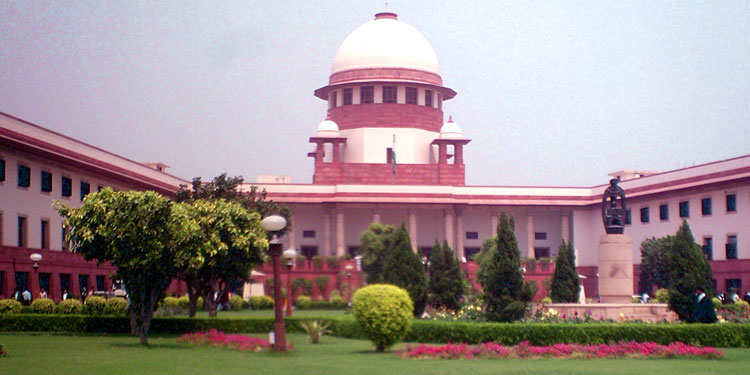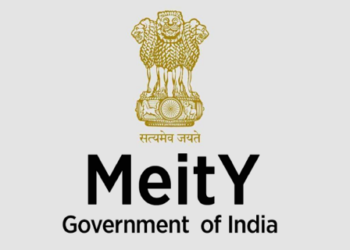New Delhi: The Supreme Court of India on Wednesday appointed an independent expert committee to look into the allegations of the Pegasus spyware controversy where the Israeli spyware was used to compromise the privacy of ministers, journalists, and activists in the country.
The independent committee will be headed by retired Supreme Court judge Justice RV Raveendran and will be assisted by Alok Joshi, former IPS Officer of 1976 batch, Dr. Sundeep Oberoi, Chairman, Sub Committee in (International Organisation of Standardisation/ International Electro-Technical Commission/Joint Technical committee). The SC has asked the committee to conduct the inquiry and submit its report “expeditiously”. The matter will be heard again after eight weeks.
The Committee has to enquire, investigate, and determine whether the Pegasus suite of spyware was used on phones or other devices of the citizens of India to access stored data, the details of the victims or persons affected by the spyware attack. The committee will also be responsible to enquire and submitting reports on what steps or actions have been taken by the Government of India after the reports on the hacking of WhatsApp surfaced in 2019. The expert committee has also been assigned to make recommendations regarding enhancing and improving the cyber security of the nation and its assets.
The expert group will have powers to hold any enquiry or investigation as it deems fit and take statements of any persons in connection with the enquiry and call for the records of any authority or individual.
The Union Government’s request to allow them to appoint an expert committee was rejected by the Court as there are allegations that the Union or State Governments are party to the rights’ deprivations of the citizens.
“Such a course of action would violate the settled judicial principle against bias that ‘justice must not only be done but also be seen to be done”, observed the Court.
Shyam Divan, Senior counsel appeared on behalf of the petitioner has sought an interim order from the Court directing the Cabinet Secretary to put certain facts on an affidavit.
To which the Court responded, “When the Union of India had already been given multiple opportunities to file an affidavit on record and looking to the conduct of the Respondent- Union of India in not placing on record any facts through their reliance on the national security defense, no useful purpose would be served by directing the Cabinet Secretary to put facts on an affidavit.”
While elaborating on the Press Freedom, the Court recalled observations made by the Supreme Court in the case of Indian Express Newspapers (Bombay) Private Limited v. Union of India, (1985) 1 SCC 641: “The freedom of the press, as one of the members of the Constituent Assembly, said, is one of the items around which the greatest and the bitterest of constitutional struggles have been waged in all countries where liberal constitutions prevail. The said freedom is attained at considerable sacrifice and suffering and ultimately it has come to be incorporated in the various written constitutions..”
“It is undeniable that surveillance and the knowledge that one is under the threat of being spied on can affect the way an individual decides to exercise his or her rights. Such a scenario might result in self-censorship. This is of particular concern when it relates to the freedom of the press, which is an important pillar of democracy. Such chilling effect on the freedom of speech is an assault on the vital public watchdog role of the press, which may undermine the ability of the press to provide accurate and reliable information,” the Court observed.
“Protection of journalistic sources is one of the basic conditions for the freedom of the press. Without such protection, sources may be deterred from assisting the press in informing the public on matters of public interest,” the Court said.
The Court was constituted to pass this order due to the following “compelling circumstances:
- Right to privacy and freedom of speech are alleged to be impacted, which needs to be examined.
- The entire citizenry is affected by such allegations due to the potential chilling effect.
- No clear stand was taken by the Respondent-Union of India regarding actions taken by it.
- Seriousness accorded to the allegations by foreign countries and involvement of foreign parties.
- The possibility that some foreign authority, agency or private entity is involved in placing citizens of this country under surveillance.
- Allegations that the Union or State Governments are party to the rights’ deprivations of the citizens.
- Limitation under writ jurisdiction to delve into factual aspects. For instance, even the question of usage of the technology on citizens, which is the jurisdictional fact, is disputed and requires further factual examination.
The Supreme Court order was a response to cases lodged by several Indian journalists and activists. The three members technical committee includes, Dr. Naveen Kumar Chaudhary, Professor (Cyber Security and Digital Forensics) and Dean, National Forensic Sciences University, Gandhinagar, Gujarat, Dr Prabaharan P., Professor (School of Engineering), Amrita Vishwa Vidyapeetham, Amritapuri, Kerala, and Dr Ashwin Anil Gumaste, Institute Chair Associate Professor (Computer Science and Engineering), Indian Institute of Technology, Bombay, Maharashtra.
















